Hatha Yoga
Posted on 5th Aug 2014
Hatha yoga in Sanskrit means sun (ha) united (yoga) with moon (tha). It is a union or yoking of the opposites. Qualities of the sun include warmth and masculine principles, while that of the moon is the opposite- coolness and feminine traits. “In essence, the practice of yoga brings together apparent opposites into a harmonious union - a place in the middle” (1). One must bear in mind that not all yogis are Hindu and that yoga is exclusively for Hindus only.
Some of the structural poses (asanas) in Hatha Yoga are Tadasana (the mountain, simply standing with feet together and hands at the sides), Salamba Shirshasana (the headstand), Salamba Sarvangasana (the shoulderstand), Utthita Trikonasana (the triangle), Paschimottanasana (the sitting forward bend), Ardha Matsyendrasana (the spinal twist).

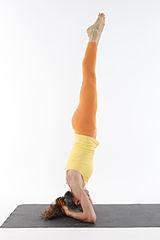
Salamba Shirshasana (the headstand)

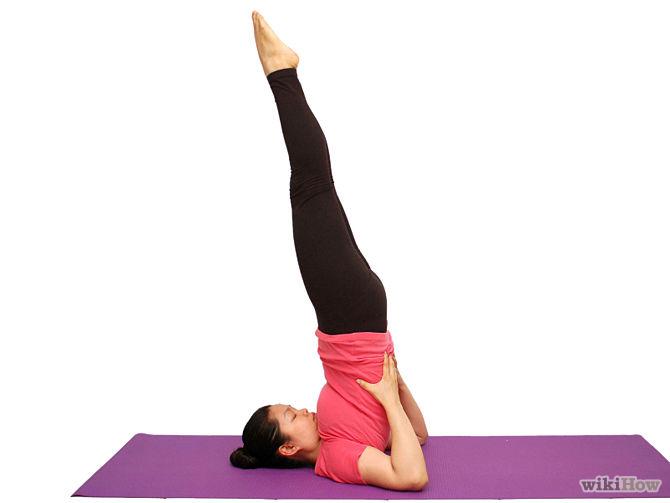
Salamba Sarvangasana (shoulderstand)


Utthita Trikonasana (the triangle)


Paschimottanasana (the sitting forward bend)

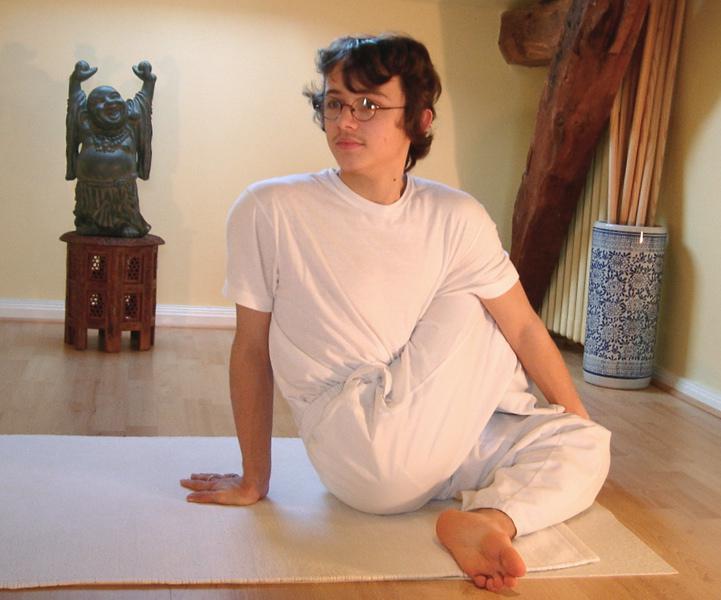
Ardha Matsyendrasana (the spinal twist)
For the tools asanas we have Halasana (the plough) and Dhanurasana (the bow). For the plants we have Vrikshasana (the tree), Padmasana (the lotus).
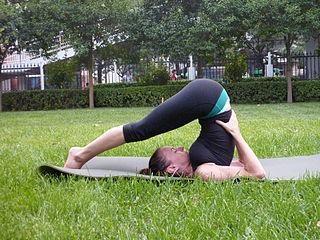

Halasana (the plough)

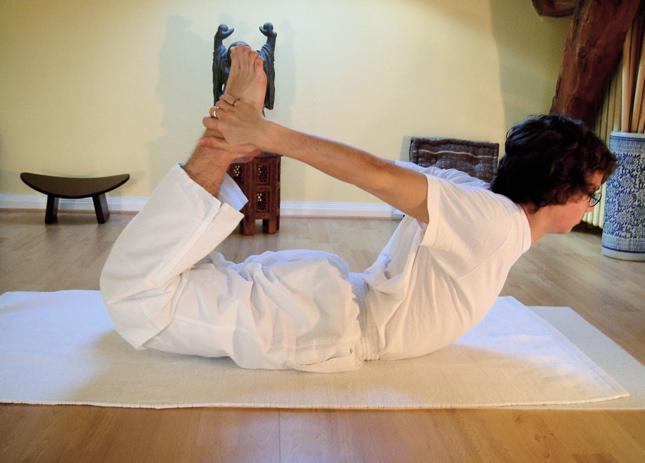
Dhanurasana (the bow)

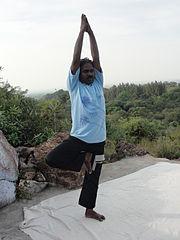
Vrikshasana (the tree)

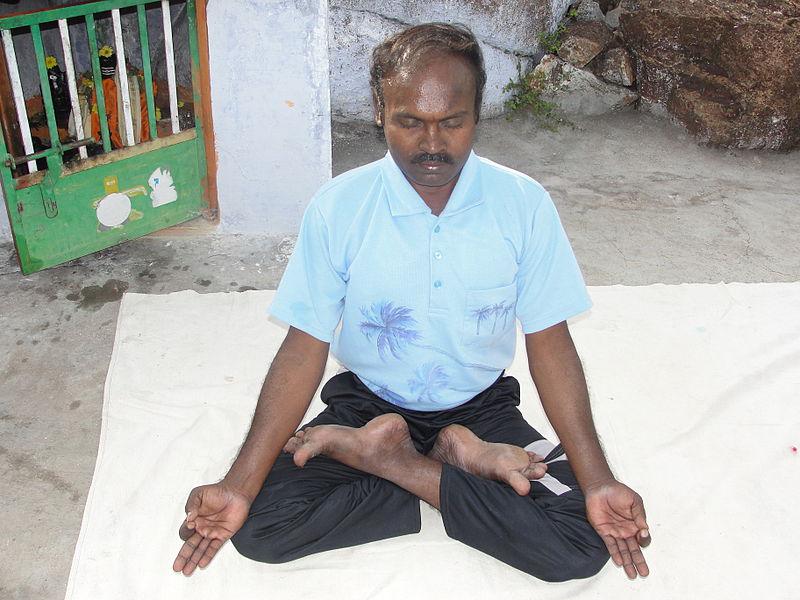
Padmasana (the lotus)
For fish, reptiles, & insects we have Matsyasana (the fish), Bhujangasana (the cobra), Kurmasana (the tortoise), and Vrishchikasana (the scorpion).

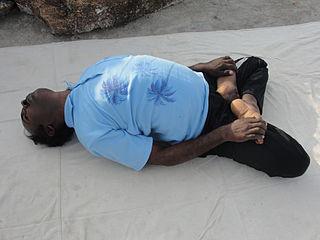
Padma Matsyasana (the fish)

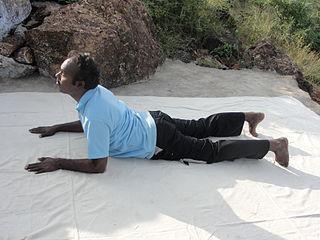
Bhujangasana (the cobra)

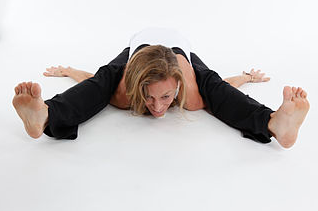
Kurmasana (the tortoise)

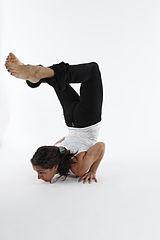
Vrishchikasana (the scorpion)
For birds we have Kukkutasana (the cock), Mayurasana & Pincha Mayurasana (the peacock & peacock feather), Garudasana (the eagle), Bakasana (the crane), Hamsasana (the swan).

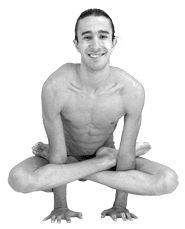
Kukkutasana (the cock)

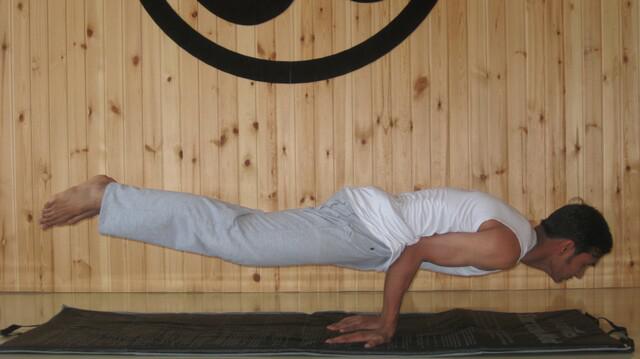
Mayurasana (the peacock)

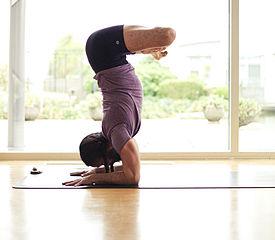
Pincha Mayurasana (peacock feather)


Garudasana (the eagle)

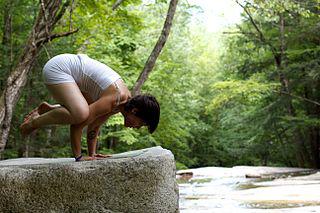
Bakasana (the crane)

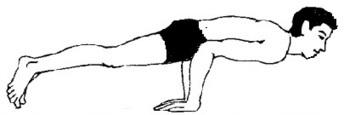
Hamsasana (the swan)
For other animals we have Gomukhasana (the cow) and Simhasana (the lion).

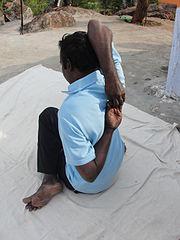
Gomukhasana (the cow)

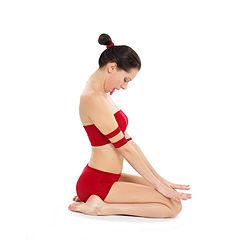
Simhasana (the lion)
Finally for the resting position, we have Shavasana (the corpse.)

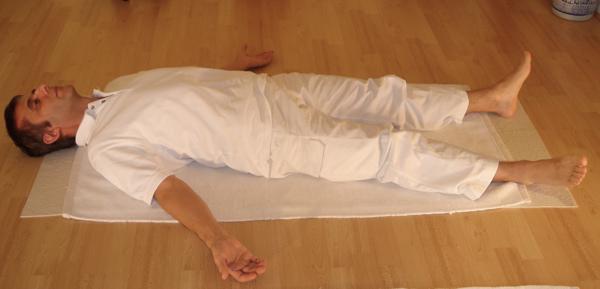
Shavasana (the corpse)
Reference:
(1) Kirk, M., Boon, B., & DiTuro, D. (2006).Hatha Yoga Illustrated. Illinois: Human Kinetics
 Loading... Please wait...
Loading... Please wait...